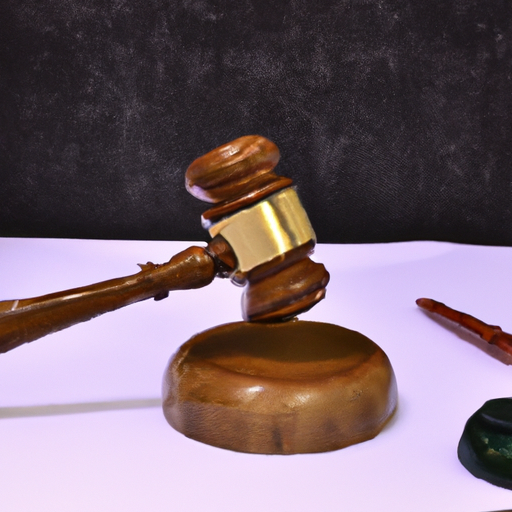In today’s digital age, social media has become an integral part of our lives, both personally and professionally. However, with this increased accessibility and connectivity comes a new set of challenges for businesses. Social media claims, whether they stem from defamation, intellectual property infringement, or employee misconduct, can have far-reaching consequences for companies. As a business owner, it is crucial to be proactive in protecting your company’s reputation and legal interests. In this article, we will explore the importance of social media claims defense, provide valuable insights into the legal aspects surrounding such claims, and offer guidance on how to navigate this complex landscape in order to safeguard your business.

Understanding Social Media Claims
Social media claims can have a significant impact on businesses, making it crucial to understand and effectively navigate this complex landscape. These claims arise when individuals or organizations make allegations, complaints, or negative comments about a business on various social media platforms. Understanding the different types of social media claims and the common pitfalls businesses face is essential in developing a strong defense strategy.
What are social media claims?
Social media claims encompass a wide range of grievances brought against businesses and can include allegations of defamation, false statements, invasion of privacy, trademark infringement, and copyright violations, among others. These claims can be made by individuals, competitors, or even employees, and have the potential to harm a company’s reputation, brand image, and bottom line.
Types of social media claims
There are several types of social media claims that businesses may encounter. Defamation claims, which involve false statements that harm a person or company’s reputation, are among the most common. Other types of claims include copyright and trademark infringement, misuse of confidential information, violation of privacy rights, and the dissemination of false advertising or promotions. Understanding these different types of claims is crucial in formulating an appropriate defense strategy.
Common pitfalls faced by businesses
Businesses face various pitfalls when dealing with social media claims. One common challenge is the speed at which information spreads on social media platforms, making it difficult to control the narrative or respond in a timely manner. Additionally, businesses may unknowingly violate laws and regulations related to social media use, opening themselves up to potential legal consequences. Finally, negative comments or reviews on social media can damage a company’s reputation, leading to lost customers and revenue. It is crucial for businesses to be proactive in addressing these pitfalls and mitigating their impact.
Importance of a solid defense strategy
Developing a solid defense strategy is paramount for businesses facing social media claims. A strong defense strategy not only protects a company’s reputation, but it also minimizes potential legal consequences and financial damages. By understanding the nuances of social media claims, businesses can effectively navigate the legal landscape, craft persuasive arguments, and build a strong defense. With the help of an experienced attorney, businesses can bolster their defense and ensure a favorable outcome.
Crafting a Strong Defense
Crafting a strong defense against social media claims requires careful consideration and strategic planning. Businesses must choose an experienced attorney, gather evidence to support their defense, analyze relevant laws and regulations, and build a persuasive argument.
Choosing an experienced attorney
Selecting the right attorney with experience in handling social media claims is crucial. An attorney who specializes in this area of law will have a deep understanding of the legal landscape and can provide guidance tailored to the unique needs of a business. It is essential to consider the attorney’s track record, reputation, and expertise before making a decision.
Gathering evidence to support your defense
To build a strong defense, businesses must gather evidence to support their case. This may include collecting screenshots or other documentation of social media posts, conducting interviews or obtaining witness statements, and compiling relevant data or analytics. Strong evidence is vital in countering the allegations made in social media claims and presenting a compelling defense.
Analyzing relevant laws and regulations
Understanding the laws and regulations that govern social media use is crucial in crafting an effective defense strategy. Businesses must analyze relevant statutes, case law, and industry-specific regulations to determine the legal principles that apply to their situation. This analysis helps shape the defense strategy and ensures compliance with applicable laws throughout the proceedings.
Building a persuasive argument
Crafting a persuasive argument is essential in defending against social media claims. Attorneys will help businesses develop arguments based on the facts and evidence gathered while presenting their case in a compelling and coherent manner. This includes outlining the legal elements that need to be proven or disproven, identifying weaknesses in the opposing side’s argument, and leveraging persuasive strategies to sway the judge or jury in favor of the defendant.
Considerations for Businesses
When faced with social media claims, businesses must carefully consider the potential impact on their brand reputation, legal consequences, protection of confidential information, and financial damages.
Impact on brand reputation
Social media claims have the potential to severely damage a business’s brand reputation. Negative comments or false allegations can quickly gain traction and tarnish a company’s image, leading to a loss of customers, partners, and investors. Businesses must proactively address such claims to safeguard their brand reputation and maintain the trust of their stakeholders.
Potential legal consequences
Social media claims can have serious legal consequences for businesses. Depending on the nature of the claim, a company may face lawsuits, fines, or other legal penalties. Understanding and complying with relevant laws and regulations is crucial in mitigating legal risks and avoiding unnecessary legal battles.
Protecting confidential information
Confidential information is often at risk of being exposed during social media claims. Businesses must take measures to protect their trade secrets, customer data, and other sensitive information from unauthorized disclosure. This may involve implementing robust data protection measures, monitoring online activities, and promptly addressing any breaches or unauthorized sharing of confidential information.
Minimizing financial damages
Social media claims can also result in significant financial damages for businesses. Lost customers, decreased sales, and legal expenses can take a toll on a company’s bottom line. By promptly addressing and defending against these claims, businesses can minimize financial harm and prevent long-term negative consequences.
Navigating the Social Media Landscape
Navigating the ever-evolving social media landscape requires businesses to be vigilant in identifying online risks and threats, implementing proactive social media policies, monitoring and managing their online presence, and effectively responding to negative comments or reviews.
Identifying online risks and threats
Businesses should stay informed about the potential risks and threats that social media platforms can pose. This includes monitoring for defamatory statements, false advertising, copyright infringement, trademark violations, and other harmful content that can harm a company’s reputation or intellectual property. Early detection of these risks allows businesses to take swift action and protect their interests.
Implementing proactive social media policies
To mitigate the risks associated with social media claims, businesses should establish clear and comprehensive social media policies. These policies should outline acceptable content, appropriate use of company social media accounts, guidelines for responding to negative comments or reviews, and procedures for reporting and addressing potential legal issues. Training employees on these policies is crucial for consistent and responsible social media use.
Monitoring and managing online presence
Regularly monitoring and managing a company’s online presence is essential in detecting and addressing potential social media claims. Businesses should employ tools and strategies to track mentions, reviews, and comments related to their brand and promptly respond to any negative feedback or false allegations. Engaging with customers and addressing concerns in a timely and professional manner can help mitigate the impact of social media claims.
Responding to negative comments or reviews
Negative comments or reviews on social media can quickly escalate and harm a business’s reputation. It is important for businesses to respond to these comments or reviews promptly and professionally. Addressing the concerns raised, offering solutions or apologies when appropriate, and demonstrating a genuine commitment to customer satisfaction can help resolve issues and mitigate the damage caused by negative social media content.
Legal Defenses for Social Media Claims
When facing social media claims, businesses can employ various legal defenses to protect their interests. These defenses include the lawful exercise of free speech, lack of defamation or false statements, fair use of copyrighted material, and no violation of privacy rights.
Lawful exercise of free speech
The First Amendment protects the right to free speech, including on social media platforms. Businesses can assert that the statements made about them were a lawful exercise of free speech and protected by the Constitution. This defense can be effective in cases where the statements are opinions, expressions of belief, or criticisms that do not cross the line into defamation or false statements.
Lack of defamation or false statements
To succeed in a defamation claim, the plaintiff must prove that the statements made were false and harmed their reputation. Businesses can defend against social media claims by disproving the false statements, demonstrating that they are true or opinion, and highlighting any lack of harm caused. By presenting evidence that refutes the defamatory nature of the statements, businesses can weaken the plaintiff’s case.
Fair use of copyrighted material
Social media claims related to copyright infringement can be defended by asserting fair use. Fair use allows for the limited use of copyrighted material without permission under certain circumstances, such as for educational, transformative, or commentary purposes. Businesses can demonstrate that their use of the copyrighted material falls within the bounds of fair use, thereby negating any infringement claims.
No violation of privacy rights
In cases involving the alleged violation of privacy rights, businesses can assert that there was no invasion of privacy. This defense may involve proving that the information shared was already publicly available, that the plaintiff had no reasonable expectation of privacy, or that the sharing of the information was otherwise justified by law.
Working with the Legal Team
When facing social media claims, businesses can benefit greatly from working closely with a dedicated legal team. The legal professionals can provide valuable guidance and support throughout the entire process, from the initial consultation to negotiating settlements or litigating in court, if necessary.
Initial consultation and case assessment
During the initial consultation, businesses should provide their legal team with all relevant information and documents regarding the social media claim. The legal team will assess the merits of the case, evaluate potential defenses, and provide an honest assessment of the chances of success. This stage is crucial in setting realistic expectations and determining the most effective legal strategy moving forward.
Developing an effective legal strategy
Based on the case assessment, the legal team will develop a comprehensive legal strategy tailored to the specific social media claim. This strategy may involve gathering additional evidence, drafting legal pleadings or responses, conducting legal research, and engaging in negotiations with the opposing party. The legal team’s expertise and experience will be instrumental in positioning the business for the most favorable outcome.
Negotiating settlements and resolving disputes
In many social media claim cases, reaching a settlement can be a desirable outcome. A skilled legal team will advocate for the best possible terms during settlement negotiations, seeking to minimize financial and reputational damage to the business. By resolving the dispute amicably, businesses can avoid lengthy and costly litigation processes.
Litigating in court, if necessary
In cases where a settlement cannot be reached, businesses may need to proceed to litigation. A dedicated legal team will effectively prepare for trial, presenting a strong case that supports the business’s defense. Skilled litigators will argue persuasively in court, ensuring that the client’s interests are vigorously protected throughout the legal proceedings.

Case Studies
Examining successful defenses against social media claims helps businesses understand the potential strategies and outcomes in similar situations. These case studies highlight lessons learned from high-profile cases and offer valuable insights for businesses navigating social media claims.
Successful defense against social media claims
In one notable case, a restaurant faced a social media claim alleging food poisoning and careless hygiene practices. The legal team employed a comprehensive defense strategy, including gathering customer testimonials, conducting inspections of the premises, and presenting evidence of rigorous food safety protocols. The court found in favor of the restaurant, citing lack of evidence to support the claim and highlighting their industry-leading hygiene practices.
Lessons learned from high-profile cases
High-profile cases involving social media claims can provide valuable lessons for businesses. For instance, a famous fashion brand successfully defended against allegations of copyright infringement by demonstrating that their use of a similar design fell within the bounds of fair use. This case highlighted the importance of understanding and asserting legal defenses to protect a company’s creative assets.
Mitigating damages through strategic defense
A business confronted with a social media claim alleging discrimination successfully mitigated damages by responding quickly and proactively. The legal team worked closely with the company to investigate the claim, implement employee training programs, and develop a comprehensive anti-discrimination policy. By addressing the claim head-on and taking appropriate corrective actions, the company effectively minimized reputational and financial harm.
Frequently Asked Questions (FAQs)
Can I be held liable for content posted by others on my company’s social media accounts?
As the owner or operator of a social media account, you may be held responsible for the content posted by others on your account. It is crucial to implement policies and procedures to monitor and moderate user-generated content to minimize liability. Consult with an experienced attorney to develop effective strategies for managing and mitigating potential legal risks.
What steps should I take to protect my business from social media claims?
To protect your business from social media claims, it is important to establish clear social media policies, train employees on responsible social media use, regularly monitor online platforms for mentions or negative comments, and promptly respond to concerns or false allegations. Additionally, consulting with an attorney who specializes in social media law can help ensure compliance with relevant laws and regulations.
Can I remove negative comments or reviews from my social media pages?
While businesses have some discretion in moderating content on their social media pages, completely removing negative comments or reviews may not always be advisable. Deleting negative comments may be seen as censorship or an attempt to hide legitimate customer concerns. Instead, consider responding professionally, addressing the issues raised, and demonstrating a commitment to resolving customer concerns.
How long do I have to respond to a social media claim?
The timeframe for responding to a social media claim can vary depending on the specific circumstances and the applicable laws. However, it is generally recommended to respond promptly and address the claim within a reasonable timeframe. Failure to respond in a timely manner can negatively impact a business’s reputation and increase the likelihood of legal consequences. Consult with an attorney to determine the best course of action based on your particular situation.
What damages can be awarded in social media claim lawsuits?
The damages that can be awarded in social media claim lawsuits vary depending on the nature of the claim and the applicable laws. Potential damages may include compensatory damages for actual harm suffered, punitive damages to punish the defendant, injunctive relief to stop certain behavior, and attorney’s fees. Consulting with an attorney who specializes in social media claims will help determine potential damages and the best defense strategy.
